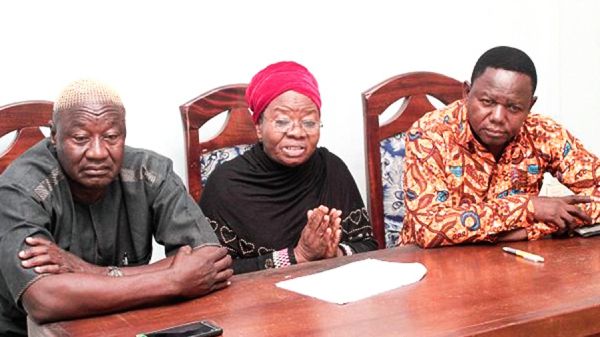
Controversy on GMOs normal – Open Forum for Agric
The Open Forum for Agricultural Biotechnology Africa (OFAB) has noted that it was normal for the country to witness divergent views on the introduction of genetically modified organisms (GMOs) into our agricultural sector, predicting that Ghana will emerge victorious at the end of the day.
The National Coordinator OFAB, Dr Richard Ampadu Ameyaw, however, noted that the debate on the matter should be left for scientists, who have the technical ability to make the right decisions.
In an interview on April 9, Dr Ameyaw said: “let us leave it to scientists you have believed in all these years to work on.”
“We will not kill anybody,” he stated.
He, however, explained that the forum would continue to sensitise the public to GMOs with the conviction that Ghana needed GMOs to ensure food security.
Agric Minister’s stance
His comments followed the recent pronouncements by the Minister of Food and Agriculture, Dr Owusu Afriyie Akoto, that Ghana does not need GMOs.
Dr Akoto was reported in the Daily Graphic as describing the GMOs as a controversial subject which a section of the Ghanaian society was seriously against.
He said at a meeting of the World Food Programme (WFP) in Accra that indeed, Ghana does not need GMO because the country was sufficient in terms of improved seeds.
His statement came at a time when Ghanaian scientists had completed trials on the country’s first GMO crop (Bt cowpea) and are expected to apply for environmental and commercial release soon.
Passion of CSOs
The minister’s comments aroused the passion of civil society organisations (CSOs) in the agricultural sector. The CSOs have since inception of the GMOs discourse held that Ghana can do without them.
At an earlier press conference in Accra jointly organised by the Peasant Farmers Association of Ghana (PFAG), the General Agricultural Workers Union (GAWU) of the Trades Union Congress (TUC), the Centre for Indigenous Knowledge and Organisational Development (CIKOD) and the Food Sovereignty Ghana (FSG), they encouraged the minister to hold on to this position.
They called on the government to resource agriculture research institutions to empower them to produce improved seeds for farmers as the solution to food insecurity in the country.
Ghana’s readiness
However, OFAB insists that Ghana was ready to introduce GMOs and that it will continue to sensitise the public and all stakeholders to the safety of the genetically modified.
He said unlike the traditional seeds, genetically modified seeds must go through processes before they are commercialised.
“With genetically modified, it is assessed from the beginning in terms of application – the document, the seed and the field – before it gets to commercialisation.
“So, if you are looking at the two, I will say the one which goes through rigorous regulation should be safer,” he said.
GMO status in Ghana
The GMO is said to have a natural resistance such that crops produced through the technology can resist insect attack, which is the challenge of most African farmers.
“There is a strong justification for any country to get ready to regulate and take advantage of the technology for national development.
If we don’t adopt the technology, our farmers will continue to be where they are and we will go and bring the products here,” the Chief Executive Officer of the National Biosafety Authority (NBA), Mr Eric Amaning Okoree, said in an interview in Accra.
He said the best way to live with the technology was not to reject it but regulate it and said the NBA had issued permits for those in the hands of researchers.
“The Crops Research Institute (CRI) has got our permit to research on a certain GMO rice that has been engineered to make best use of any poorest land one can think of, and it can grow on upland and on a saline soil.
We have also given permit for the trial of BT cowpea by the Savanna Agricultural Research Institute (SARI) in Tamale.
This means it has been engineered to resist insects,” he said.
The debate on the release of Genetically Modified Organisms (GMO foods), into the environment and the marketing of GM foods in many parts of the world have often centred on costs, benefits and safety issues. Experts say it likely to continue.
It is alleged to have been borne-out of a trade war between proponents and anti-GM groups (suspected pesticide companies),who risk going out of business, therefore, countries, especially developing ones do not need to join the band wagon.